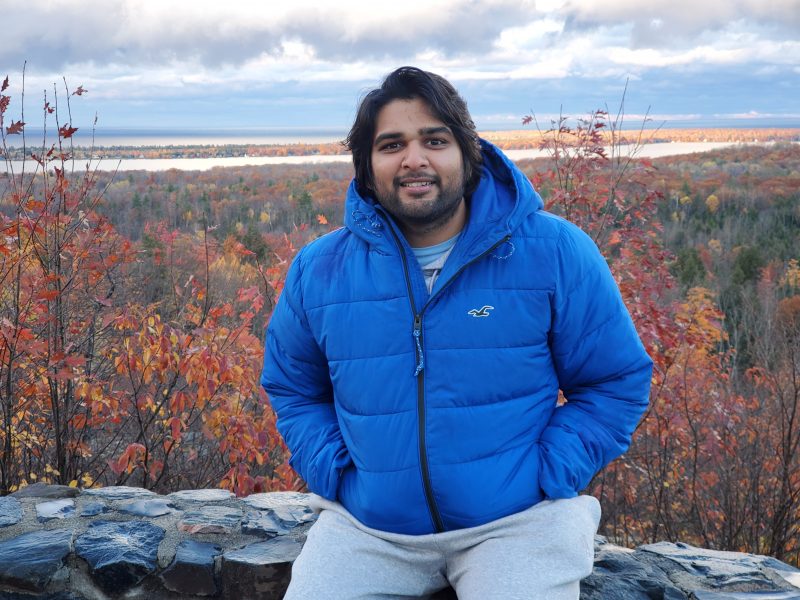My passion for research developed early on in my life as I saw my father going to the laboratory, doing research using cool equipment. He inspired me to ask intriguing questions in life and find answers to them. My journey in biomedical research began during my undergraduate in biotechnology where I was introduced to the concepts of cell and molecular biology research and its application. In my undergrad, I got firsthand experience of working in a research lab where I learned to independently run PCR (polymerase chain reaction) and electrophoresis gels. This sparked my curiosity to further develop my career in research. That’s when I joined Michigan Tech as a master’s student in the biomedical engineering department. At Michigan Tech, I learned about the development of biomaterials and their physiological applications. During this time, I also got the opportunity to do an internship at a Biotech company.
My research experience during my master’s and internship motivated me in advancing my professional career and join PhD. In 2018, I got the opportunity to join Dr. Sangyoon Han’s Mechanobiology laboratory. My research focus is to understand the mechanism of how cells sense the stiffness of their surrounding environment. Specifically, I am investigating how and when exactly the mechanical link between a cell and its extracellular matrix (ECM), known as focal adhesions, sense different stiffness and molecules involved in the process. For this purpose, I use soft elastic gels (biomaterials), live-cell imaging microscopy, and machine learning-based image analysis to study how different ECM stiffness can affect the force transfer through these connections. Mechanical stiffness of the matrix has been known to dictate cell behavior such as their survival, proliferation, migration, altered drug response and even tumor progression. With my research, I aim to provide new insights in physiology and pathophysiology for developmental disorders, cancer progression and metastasis and designs of tissue transplantation. This is critical in determining treatment strategies for these diseases. Along with research, I was fortunate to mentor and supervise many undergraduate and masters’ students for their respective projects. I also got the opportunity to present my work at different conferences and win grants for my research.
I am grateful to my advisor Dr. Sangyoon J. Han for his continued support and guidance over my PhD years at Michigan Tech. I am also grateful to my committee and biomedical engineering department for supporting me with my PhD journey. I am thankful to the Graduate school and Graduate Dean Awards Advisory Panel for granting me this fellowship. This fellowship will help me dedicate all of my time to complete my dissertation.
